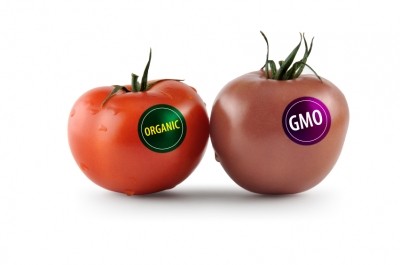Industry comment
Who is afraid of GMOs?
societies continue the quest to slice the fat from their
increasingly obese populations, five million children die from
hunger each year, and more than 850m people go chronically hungry.
And the irony is, in their superior knowledge, the fatties have put the brakes on possibly one of the greatest hopes to alleviate hunger: genetically modified crops.
Proponents of biotech foods claim tinkering with the genetic make-up of food crops boosts yields: by improving productivity and survival in drought regions; and producing pest-resistant and stress-tolerant crops.
Not only this, biotech could breed much-needed nutrients and vitamins into plants.
In short, crops could be made to grow on poor soil in marginal lands, increasing overall food production, reducing pesticide use and improving the nutritional value to populations.
But while private companies and academics are pushing the boundaries of this particular strand of biotechnology, for consumers and governments, notably in Europe, GMOs have become a byword for bad.
The fatties fear that genetically modified foods, or 'Frankenstein foods' as they are darkly termed, can harm human health. And anyway, they're fat, their crops are bountiful and they absolutely have no need for biotech food crops modified to cope with drought.
In the 1990's, campaigners like Greenpeace and Friends of the Earth succeeded in propagating the line that GM foods should be banned from the food chain because they posed a potential risk to health.
The European media, especially the UK press, sucked the issue up, giving wide coverage to this paper-selling subject. Their column inches often played to a set of reader prejudices: fear of scientific progress; the powerful food industry somehow trying to hoodwink us into consuming risky foods; lack of trust in, and massive suspicion of, an industry that fed BSE contaminated meat into the food chain.
Yet, to date, proof that GM foods could harm human health is absent. There is no evidence that they are bad for consumers, confirms Greenpeace.
This confirmation comes despite recent media reports suggesting that the dark king of biotechnology, US firm Monsanto, is involved in a cover-up of key evidence on GM risks.
A Monsanto report is alleged to show that rats fed with Monsanto's GM MON 863 corn developed internal abnormalities, but the health problems were absent from the non-GM rat eaters. The food safety authorities, with the full report before them, have classified the corn as safe for consumption.
But Monsanto's poor handling of this latest controversy, and its absolute refusal to make the report public despite calls across the globe, simply serves to fuel consumer suspicion.
Indeed, over the years, the media 'unfriendly' Monsanto has provided ample fodder for anti-GM campaigners. What irony that the key proponent of GM foods should have done most of all to feed opposition to the technology.
And yet, while the passionate opposition to GM foods has settled around unsubstantiated health issues, the real equation of costs and benefits looks to be an environmental one. And this the rich world should be heeding.
There is now accumulating evidence that GM crops such as corn, soy, cotton and wheat may be detrimental to ecosystems. This is clearly an issue that must be addressed by governments and industry, through painstaking trials.
Yet at the same time, GM technology may also benefit the environment, by slicing away toxic agricultural pesticides, fertilizer and other soil treatments. As example, recent GM rice trials in China found an 80 per cent reduction in pesticide use by the farmers of GM crops, compared with those using conventional rice varieties.
This flips back to human health. Many farmers suffer through the mishandling of such chemicals, and consumers imbibe the residues.
Thus, while it would be naïve and simplistic to suggest that GM foods alone can solve the problem of world hunger, it is more than naive and simplistic to reject this technology so lightly.
In the next 30 years an additional 2bn people will need food, as agricultural resources are increasingly threatened by depletion, water scarcity and global warming.
What we need are rafts of long-term studies, run independently from industry, to guarantee that GM foods are safe for human consumption, and to investigate the pluses and minuses of their environmental impact.
And for as long as current data suggests there is no apparent risk to health, and world hunger inches close to the one billion mark, the technology is far too valuable to abandon.
The duty of the fatties is to weigh the evidence: before they sign-off crops that can feed more people, in the harshest environments, with scant chemical input.
Lindsey Partos is the editor of FoodNavigator.com and a winner of journalism awards for both the publication and her editorship. A long-time food writer, and the founder of the Novis Group editorial operation, she is oft-interviewed by other media, and widely cited as an expert in her field. If you would like to comment on the article, please contact Lindsey Partos.














